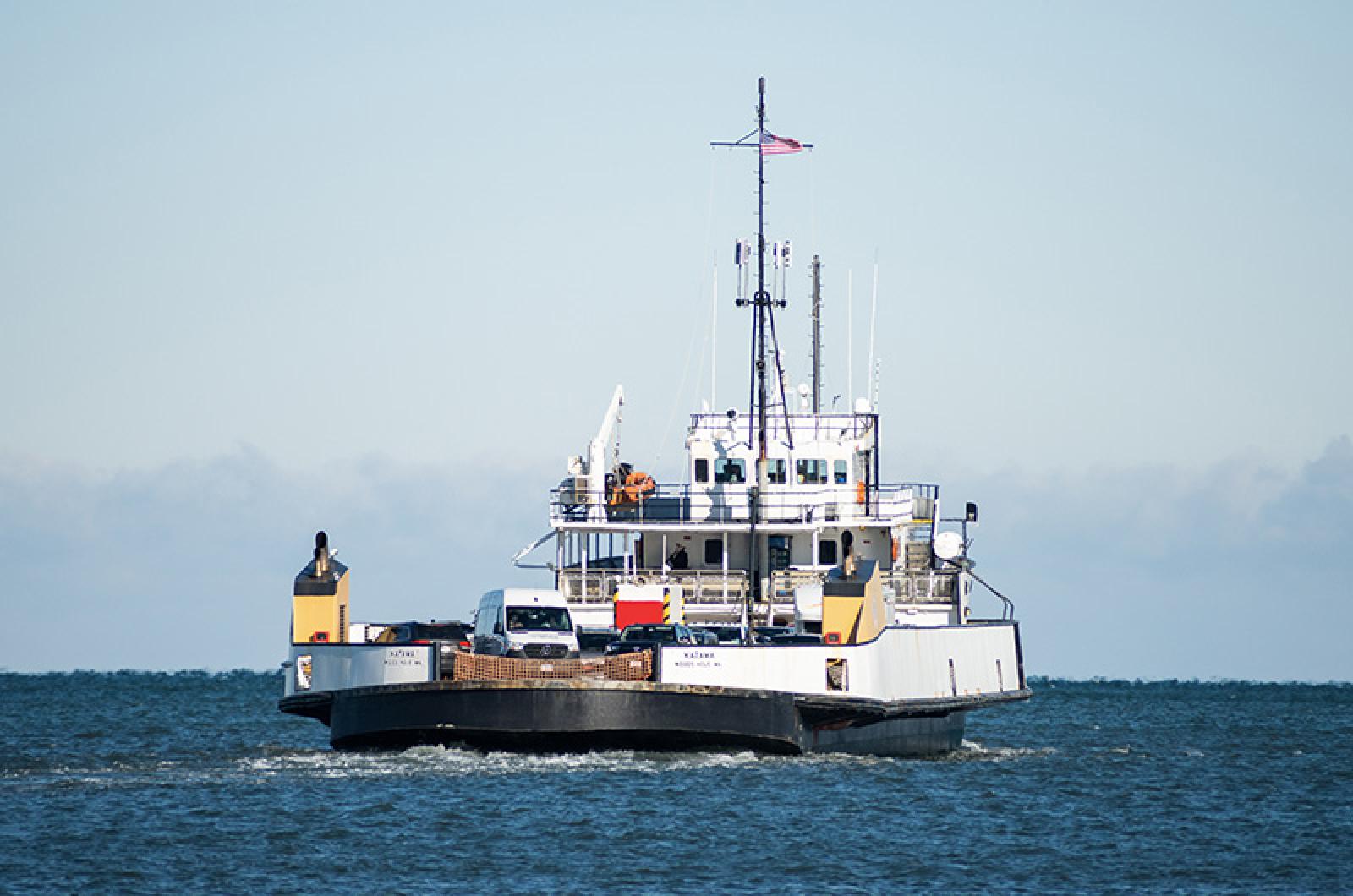The cost of overhauling the Steamship Authority freight ferry M/V Katama, originally estimated at $1.1 million, has ballooned by more than 40 per cent after drydock workers in Connecticut found deteriorating structural steel deep inside the vessel.
The boat line board of governors met August 31 to review change orders totaling $461,314 from Thames Shipyard in New London, Conn., to renew and replace the steel in two parts of the boat, as well as remove and replace the concrete ballast in which some of the steel was embedded.
“The two areas we’re talking about … were not accessible at all to do any pre-vetting before going to the shipyard,” SSA director of marine operations Mark Amundsen told the board.
Some four to five feet of concrete, part of the vessel’s dedicated ballast system, had surrounded the steel in one area for the better part of the last 15 years and had to be removed to get at the metal, Mr. Amundsen said.
Renewing the steel will cost more than $260,000 and removing and replacing the concrete will add nearly $103,000.
A third change order for nearly $98,000 is for replacing structural steel plating in the engine room bulkhead.
“This was underneath the fuel tank,” Mr. Amundsen said.
Board chair Moira Tierney of New Bedford noted the unusually large change order request.
“You feel like this is worth it in terms of the boat?” she asked Mr. Amundsen.
“At this point, we’re committed,” he said.
Concerned by the additional expense, which comes less than a year before two newer freight boats are expected to go into service next summer, Falmouth SSA governor Peter Jeffrey asked what would happen if the boat line just walked away from the Katama project.
“We couldn’t scuttle this in the drydock?” Mr. Jeffrey asked.
No, was the upshot of SSA staff’s responses:
The Katama can’t be moved in its current state, even to a scrapyard, Mr. Amundsen said.
It also can’t pass a Coast Guard inspection, making its resale worth no more than scrap value, Mr. Davis said.
Meanwhile, the shipyard has customers waiting for its drydock — Katama was late for its time slot after the Gay Head went out of service last month.
“We’re at least two weeks behind,” Mr. Davis said. “It’s going to start impacting their other business.”
And the SSA still needs the Katama in its line-up.
“Operationally, we need to have the vessel available,” Mr. Davis said.
The board of governors voted unanimously to approve the change orders.






Comments (6)
Comments
Comment policy »